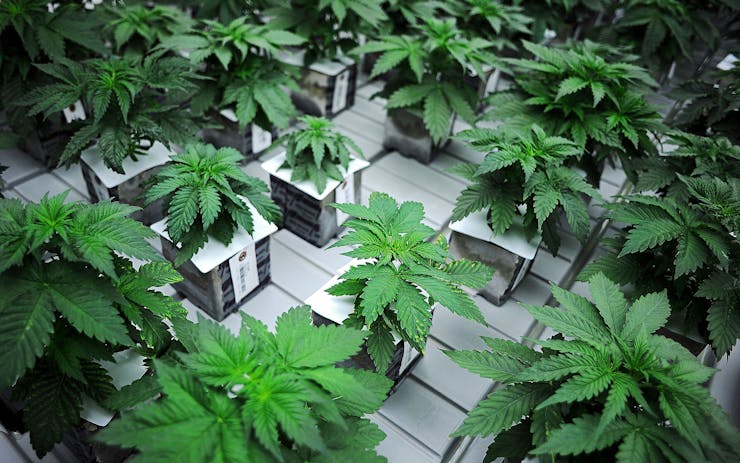Members of the Oglala Sioux Tribe passed a referendum to legalize medical and recreational marijuana on the Pine Ridge Reservation in South Dakota, according to preliminary results from the tribe’s election commission.
A proposal to allow alcohol in the tribe’s casino failed.
The results of Tuesday’s vote will be certified in the next week. In the tally from all precincts announced on Wednesday morning, both medical and recreational marijuana passed by wide margins, with 82% of voters approving medical marijuana and 74% approving recreational pot. The alcohol proposal failed by 12 percentage points.
The Oglala Sioux will become the only Native American tribe to set up a cannabis market in a state where it’s otherwise illegal. The tribal council is next supposed to enact laws for how marijuana will be legalized and regulated. According to initial plans, the tribe will not take ownership of cannabis production or retail, but license individuals and put a retail tax on pot. The Tribal Council will take up the issue on March 30.
Tribal leaders who pushed the initiative said it has the potential to bring in millions of dollars of business to a community that is one of the most impoverished in the country.
But the legalization of marijuana also sets up a potential conflict with federal and state authorities. The Flandreau Santee Sioux Tribe in the eastern part of the state attempted to grow and sell marijuana in 2015, but ended up burning its cannabis plants after conflicts with federal and state governments.
Tribal leaders have said they want to cooperate with authorities in setting up a cannabis market. South Dakota voters will also decide on medical and recreational marijuana legalization in a referendum on ballots in November.
If voters decide to legalize marijuana in the state, it could mean a boom for the tribe’s marijuana market. They would have a head start in growing and selling pot, making tribal members the only retailers in the state for a period.
Trent Hancock, a marijuana producer from Oregon who has helped the tribe formulate its cannabis plans, hoped that tribal members could sell $100 million of the product in a year under that scenario.
If South Dakota does not legalize marijuana, tribal leaders are planning to set up a cannabis resort at the tribe’s casino. They would attempt to keep people from taking marijuana off tribal lands through limiting the amount people could purchase and tracking their purchases.





